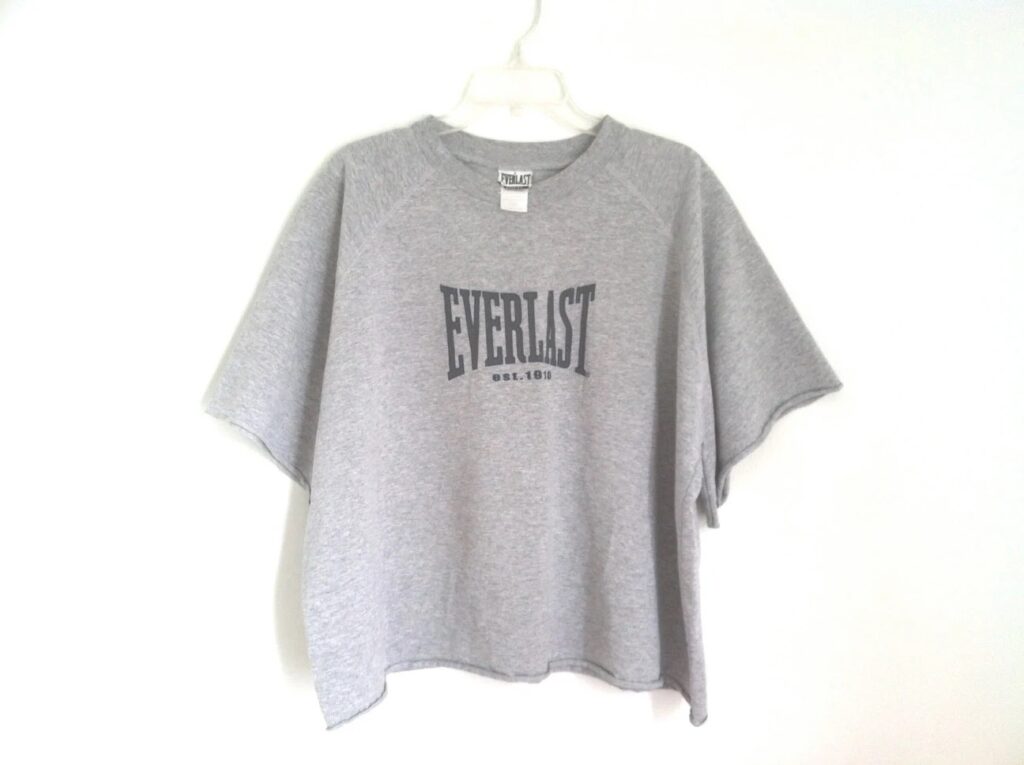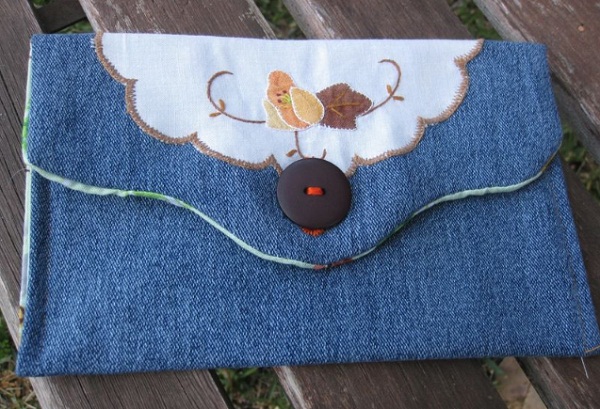The other day I was sorting out clothes for the Canadian Diabetes Association’s clothing pickup, when I came across recycled, and then again recycled, sweat shirts. Some people save egg cartons, bottles, margarine containers, and old tins, (the list is endless) for recycling. These items could be saved for themselves; curbside recycling pickup; or for friends’ projects. I save old and used arms and legs cut from sweat shirts.
 This material is soft, and easy to sew together in new combinations- injecting creativity into a new favorite sweatshirt .
This material is soft, and easy to sew together in new combinations- injecting creativity into a new favorite sweatshirt .
I keep a box in the basement of sweat shirts arms, a second box for legs and the third box is for cuffs, buttons, necks, waist ties and emblems. While watching T. V., I would cut off arms at the shoulders, and legs from the belt line. I would ask friends and family for their used sweat shirt tops and bottoms. “Don’t throw them away,” I would plead. “I will come over and pick them up!” For myself, I find the cuffs on my sweat shirts become frayed quickly. I would replace them with cuffs from the third box. I would cut off the cuff and then reattach the “new” cuff I had taken from the third box by stretching the material, pinning and inserting it back into the cuff.

This whole process could also be done for replacing thinning areas on the arms. I now have created a “new/used” sweatshirt. Mixing up the colours of the cuffs and arms allows me to change the colours, and replace worn areas. Try putting white arms into a red sweat shirt. Red and white—you are truly Canadian!
You have probably had many a spill on the front of your favorite sweat shirt.
I find that these stains never come out. (Forget it. I’ve tried and tried). From the third box, I would retrieve an emblem cut from another sweat shirt like a sporting team, golfing logo, or a bit of prose. This emblem can be sewn on a front of a sweat shirt to cover up those impossible stains that never wash out. Bravo! You now have a “new/used” sweatshirt.
When you get tired of your creations, repeat the process. This recycling can go on forever.
When you think you have had it with these extra “cut parts,” drop them off at a thrift store. They can be used again by other people for their creative projects. Try giving them as gifts, or at a garage sale under “Unique Clothing.”
Now that the arms, cuffs, fronts, and emblems have been taken care of, let me address the legs. Take one old sweat pant, and cut off the legs, one inch below the crotch.

Sew them up by hand, or on a sewing machine across the bottom of both legs. From the leftover leg material, cut strips the length you need, and sew attaching them to the waist, (criss-crossing is the best way) to make straps shoulder or hand lengths. Fantastic! You now have a purse or recyclable bag for purchases depending on the size of the sweat pants used. Try sewing a change purse using a saved drawstring from a collected waist tie.

It costs nothing but your time and creative effort. Any left over leg material is now scrap material. This scrap material can be used for kitchen wash cloths, furniture dusters, or something I love to do, wrapping scrap pieces around a sponge mop. It’s a great way to get all those cob webs lurking at the top of the ceiling. It is certainly safer than standing on a chair.
It has been pointed out to me that I have been recycling from the recycled. That is true, and something I enjoy, and will continue to do. For the Silo, Blair Yager.
